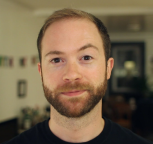David McRaney's Blog, page 27
April 8, 2016
YANSS 073 – How to get the most out of realizing you are wrong by using Bayes’ Theorem to update your beliefs
We don’t treat all of our beliefs equally.
For some, we see them as either true or false, correct or incorrect. For others, we see them as probabilities, chances – odds. In one world, certainty, in the other, uncertainty.

Download – iTunes – Stitcher – RSS – Soundcloud
This episode is brought to you by the MIT Press, publishing Suzana Herculano-Houzel’s book The Human Advantage: A New Understanding of How Our Brain Became Remarkable. Read more about The Human Advantage and a few other new science, philosophy, language, and technology titles at mitpress.com/smart.
This episode is also sponsored by
and using code sosmart
This episode is also brought to you by The Great Courses Plus. Get unlimited access to a huge library of The Great Courses lecture series on many fascinating subjects. Start FOR FREE with The Fundamentals of Photography filmed in partnership with The National Geographic and taught by professional photographer Joel Sartore. Click here for a FREE TRIAL.
If you love the show and want to support its continued production, become a patron! Get episodes one-day-early and ad-free as well as show extras and original content just for patrons. Head over to the YANSS Patreon Page for more details.

In this episode you will learn from two experts in reasoning how to apply a rule from the 1700s called Bayes’ Theorem not only to numbers you can plug into formulas, but also to the beliefs you carry around in order to make sense of the world.
 Julia Galef is the president and co-founder of the Center for Applied Rationality, a non-profit organization that training people and organization to make better decisions. She is also the host of the Rationally Speaking Podcast and has written for Slate, Science, Scientific American, and Popular Science.
Julia Galef is the president and co-founder of the Center for Applied Rationality, a non-profit organization that training people and organization to make better decisions. She is also the host of the Rationally Speaking Podcast and has written for Slate, Science, Scientific American, and Popular Science.
 Neil A. Manson is a philosopher and professor who teaches at the University of Mississippi. He teaches logic, philosophy, religion, philosophy of science, and medical ethics. His research concerns the design argument, and he assembled an anthology on the topic titled: God and Design: The Teleological Argument and Modern Science.
Neil A. Manson is a philosopher and professor who teaches at the University of Mississippi. He teaches logic, philosophy, religion, philosophy of science, and medical ethics. His research concerns the design argument, and he assembled an anthology on the topic titled: God and Design: The Teleological Argument and Modern Science.
In the show, Manson explains the math side of Bayes’ Theorem, and Galef tells us how Bayes’ Theorem makes it possible to see all of your beliefs as being in “grayscale,” as neither black nor white, neither 0 nor 100 percent, but always somewhere in between, as a shade of gray reflecting your confidence in just how wrong you might be given the evidence at hand.
In every episode, after I read a bit of self delusion news, I taste a cookie baked from a recipe sent in by a listener/reader. That listener/reader wins a signed copy of my new book, “You Are Now Less Dumb,” and I post the recipe on the YANSS Pinterest page. This episode’s winner is Andreas von Normann who submitted a recipe for Navette Provencale cookeies. Send your own recipes to david {at} youarenotsosmart.com.
Links and Sources
Download – iTunes – Stitcher – RSS – Soundcloud
An Intuitive Explanation of Bayes’ Theorem by Luke Muehlhauser
Center for Applied Rationality
Image Source: Popular Science Monthly Public Domain – Wikimedia Commons

YANSS 072 – Why we are unaware of how unaware we are
Each one of us has a relationship with our own ignorance, a dishonest, complicated relationship, and that dishonesty keeps us sane, happy, and willing to get out of bed in the morning.
Part of that ignorance is a blind spot we each possess that obscures both our competence and incompetence.

Download – iTunes – Stitcher – RSS – Soundcloud
This episode is also brought to you by The Great Courses Plus. Get unlimited access to a huge library of The Great Courses lecture series on many fascinating subjects. Start FOR FREE with The Fundamentals of Photography filmed in partnership with The National Geographic and taught by professional photographer Joel Sartore. Click here for a FREE TRIAL.
If you love the show and want to support its continued production, become a patron! Get episodes one-day-early and ad-free as well as show extras and original content just for patrons. Head over to the YANSS Patreon Page for more details.

In the case of singing, you might get all the way to an audition on X-Factor on national television before someone finally provides you with an accurate appraisal. David Dunning says that the shock that some people feel when Simon Cowell cruelly explains to them that they suck is often the result of living for years in an environment filled with mediocrity enablers. Friends and family, peers and coworkers, they don’t want to be mean or impolite. They encourage you to keep going until you end up in front of millions reeling from your first experience with honest feedback.
 When you are unskilled yet unaware, you often experience what is now known in psychology as the Dunning-Kruger effect, a psychological phenomenon that arises sometimes in your life because you are generally very bad at self-assessment. If you have ever been confronted with the fact that you were in over your head, or that you had no idea what you were doing, or that you thought you were more skilled at something than you actually were – then you may have experienced this effect. It is very easy to be both unskilled and unaware of it, and in this episode we explore why that is with professor David Dunning, one of the researchers who coined the term and a scientist who continues to add to our understanding of the phenomenon.
When you are unskilled yet unaware, you often experience what is now known in psychology as the Dunning-Kruger effect, a psychological phenomenon that arises sometimes in your life because you are generally very bad at self-assessment. If you have ever been confronted with the fact that you were in over your head, or that you had no idea what you were doing, or that you thought you were more skilled at something than you actually were – then you may have experienced this effect. It is very easy to be both unskilled and unaware of it, and in this episode we explore why that is with professor David Dunning, one of the researchers who coined the term and a scientist who continues to add to our understanding of the phenomenon.
Links and Sources
Download – iTunes – Stitcher – RSS – Soundcloud
Scientific Evidence That Self-Promoters Underestimate How Annoying They Are
20 Minutes of X-Factor Auditions
Ignorance and Surprise: Science, Society, and Ecological Design (Inside Technology)

Image Source: Picserver via Creative Commons 3 – CC BY-SA 3.0

March 23, 2016
YANSS 071 – The Texas Sharpshooter Fallacy
When you desire meaning, when you want things to line up, when looking for something specific, you tend to notice patterns everywhere, which leads you to ask the question, “What are the odds?” Usually, the odds are actually pretty good.
For instance: Does the Bermuda Triangle seem quite as mysterious once you know that just about any triangle of that size drawn over the globe just about anywhere planes and ships frequently travel will contain as many, if not more, missing planes and ships?
Drawing circles (or triangles) around the spots where randomness clusters together seemingly chance events is called The Texas Sharpshooter fallacy, and it is one of the easiest mistakes to make when trying to understand big, complex sets of data.
Though some things in life seem too amazing to be coincidence, too odd to be random, too similar to be chance, given enough time (and enough events) randomness will begin to clump up in places. Since you are born looking for those spots where chance events have built up like sand into dunes, picking out clusters of coincidence is a predicable malfunction of a normal human mind, and it can easily lead to the Texas Sharpshooter Fallacy.
Listen as three experts in reasoning and logic explain why it is so easy to find what you are looking for when you go anomaly hunting in a large set of data.
This episode of the You Are Not So Smart Podcast is the fifth in a full season of episodes exploring logical fallacies. The first episode is here.

Download – iTunes – Stitcher – RSS – Soundcloud
This episode is brought to you by Mack Weldon who believes in smart design, premium fabrics and simple shopping. All of their products (shirts, socks, sweats, underwear) are naturally antimicrobial (which means they eliminate odor). They want you to be comfortable, so If you don’t like your first garment, you can keep it, and they will still refund you. No questions asked. Go to MackWeldon.Com and get 20% off using promo code SOSMART.
This episode is brought to you by The Great Courses Plus. Get unlimited access to a huge library of The Great Courses lecture series on many fascinating subjects. Start FOR FREE with The Fundamentals of Photography filmed in partnership with The National Geographic and taught by professional photographer Joel Sartore. Click here for a FREE TRIAL.
This episode of You Are Not So Smart is brought to you by Squarespace, the all-in-one platform that makes it fast and easy to create your own professional website or online portfolio. For a free trial and ten percent off go to Squarespace.com and use the offer code SOSMART.
Support the show directly by becoming a patron! Get episodes one-day-early and ad-free. Head over to the YANSS Patreon Page for more details.

 Barbara Drescher is a cognitive psychologist and skeptical activist who lectured at California State University and currently serves as educational programs consultant for the James Randi Educational Foundation. Her website is ICBSEverywhere.com.
Barbara Drescher is a cognitive psychologist and skeptical activist who lectured at California State University and currently serves as educational programs consultant for the James Randi Educational Foundation. Her website is ICBSEverywhere.com.
 Jesse Richardson is the founder of YourLogicalFallacyIs.com, a fantastic website where you can learn about fallacies and critical thinking and easily share what you discover. He is an award-winning creative lead on a number of other projects including School Of Thought.
Jesse Richardson is the founder of YourLogicalFallacyIs.com, a fantastic website where you can learn about fallacies and critical thinking and easily share what you discover. He is an award-winning creative lead on a number of other projects including School Of Thought. Mike Rugnetta is the writer and host of PBS Idea Channel produced by PBS Digital Studios. On Idea Channel he applies philosophical and critical concepts to pop-culture ideas and other more-familiar topics in an effort to better explain to a general, internet-savvy audience the strange and abstract propositions he explores in wonderful detail.
Mike Rugnetta is the writer and host of PBS Idea Channel produced by PBS Digital Studios. On Idea Channel he applies philosophical and critical concepts to pop-culture ideas and other more-familiar topics in an effort to better explain to a general, internet-savvy audience the strange and abstract propositions he explores in wonderful detail.
In every episode, after I read a bit of self delusion news, I taste a cookie baked from a recipe sent in by a listener/reader. That listener/reader wins a signed copy of my new book, “You Are Now Less Dumb,” and I post the recipe on the YANSS Pinterest page. This episode’s winner is Anton Angelo who sent in a recipe for Belgium cookies. Send your own recipes to david {at} youarenotsosmart.com.
Links and Sources
Download – iTunes – Stitcher – RSS – Soundcloud

February 26, 2016
YANSS 070 – The No True Scotsman Fallacy
When your identity becomes intertwined with your definitions, you can easily fall victim to something called The No true Scotsman Fallacy.
It often appears during a dilemma: What do you do when a member of a group to which you belong acts in a way that you feel is in opposition to your values? Do you denounce the group, or do you redefine the boundaries of membership for everyone?
In this episode, you will learn from three experts in logic and argumentation how to identify, defend against, and avoid deploying this strange thinking quirk that leads to schisms and stasis in groups both big and small.
This episode of the You Are Not So Smart Podcast is the third in a full season of episodes exploring logical fallacies. The first episode is here.

Download – iTunes – Stitcher – RSS – Soundcloud
This episode is brought to you by Trunk Club. Like Netflix for clothes, a professional stylist helps you define your new look, and then your new clothes arrive at your doorstep in a special trunk. Keep what you want, return the rest. Get started today and Trunk Club will style you for FREE. Plus FREE SHIPPING both ways! Click here for this special offer.
This episode is brought to you by The Great Courses Plus. Get unlimited access to a huge library of The Great Courses lecture series on many fascinating subjects. Start FOR FREE with The Fundamentals of Photography filmed in partnership with The National Geographic and taught by professional photographer Joel Sartore. Click here for a FREE TRIAL.
Support the show directly by becoming a patron! Get episodes one-day-early and ad-free. Head over to the YANSS Patreon Page for more details.

 Barbara Drescher is a cognitive psychologist and skeptical activist who lectured at California State University and currently serves as educational programs consultant for the James Randi Educational Foundation. Her website is ICBSEverywhere.com.
Barbara Drescher is a cognitive psychologist and skeptical activist who lectured at California State University and currently serves as educational programs consultant for the James Randi Educational Foundation. Her website is ICBSEverywhere.com.
 Jesse Richardson is the founder of YourLogicalFallacyIs.com, a fantastic website where you can learn about fallacies and critical thinking and easily share what you discover. He is an award-winning creative lead on a number of other projects including School Of Thought.
Jesse Richardson is the founder of YourLogicalFallacyIs.com, a fantastic website where you can learn about fallacies and critical thinking and easily share what you discover. He is an award-winning creative lead on a number of other projects including School Of Thought. Mike Rugnetta is the writer and host of PBS Idea Channel produced by PBS Digital Studios. On Idea Channel he applies philosophical and critical concepts to pop-culture ideas and other more-familiar topics in an effort to better explain to a general, internet-savvy audience the strange and abstract propositions he explores in wonderful detail.
Mike Rugnetta is the writer and host of PBS Idea Channel produced by PBS Digital Studios. On Idea Channel he applies philosophical and critical concepts to pop-culture ideas and other more-familiar topics in an effort to better explain to a general, internet-savvy audience the strange and abstract propositions he explores in wonderful detail.
In every episode, after I read a bit of self delusion news, I taste a cookie baked from a recipe sent in by a listener/reader. That listener/reader wins a signed copy of my new book, “You Are Now Less Dumb,” and I post the recipe on the YANSS Pinterest page. This episode’s winner is Ashley Crutcher who sent in a recipe for poop cookies. Send your own recipes to david {at} youarenotsosmart.com.
Links and Sources
Download – iTunes – Stitcher – RSS – Soundcloud

February 19, 2016
YANSS 069 – The Black and White Fallacy
Why do you try to drain the world of color when backed into a rhetorical corner?
Why do you have such a hard time realizing that you have suggested the world is devoid of nuance when you are in the heat of an argument, reducing all colors to black or white, and all choices to A or B?
In this episode, you’ll learn from three experts in logic and arguing why human brains are prone to the black and white fallacy and the false dichotomies it generates. You’ll learn how to spot this fallacy, what to do when someone uses it against you, and how to avoid committing it yourself.
This episode of the You Are Not So Smart Podcast is the third in a full season of episodes exploring logical fallacies. The first episode is here.

Download – iTunes – Stitcher – RSS – Soundcloud
This episode is brought to you by Trunk Club. Like Netflix for clothes, a professional stylist helps you define your new look, and then your new clothes arrive at your doorstep in a special trunk. Keep what you want, return the rest. Get started today and Trunk Club will style you for FREE. Plus FREE SHIPPING both ways! Click here for this special offer.
This episode is brought to you by The Great Courses Plus. Get unlimited access to a huge library of The Great Courses lecture series on many fascinating subjects. Start FOR FREE with The Fundamentals of Photography filmed in partnership with The National Geographic and taught by professional photographer Joel Sartore. Click here for a FREE TRIAL.
This episode of You Are Not So Smart is brought to you by Squarespace, the all-in-one platform that makes it fast and easy to create your own professional website or online portfolio. For a free trial and ten percent off go to Squarespace.com and use the offer code SOSMART.
Support the show directly by becoming a patron! Get episodes one-day-early and ad-free. Head over to the YANSS Patreon Page for more details.

 Barbara Drescher is a cognitive psychologist and skeptical activist who lectured at California State University and currently serves as educational programs consultant for the James Randi Educational Foundation. Her website is ICBSEverywhere.com.
Barbara Drescher is a cognitive psychologist and skeptical activist who lectured at California State University and currently serves as educational programs consultant for the James Randi Educational Foundation. Her website is ICBSEverywhere.com.
 Jesse Richardson is the founder of YourLogicalFallacyIs.com, a fantastic website where you can learn about fallacies and critical thinking and easily share what you discover. He is an award-winning creative lead on a number of other projects including School Of Thought.
Jesse Richardson is the founder of YourLogicalFallacyIs.com, a fantastic website where you can learn about fallacies and critical thinking and easily share what you discover. He is an award-winning creative lead on a number of other projects including School Of Thought. Mike Rugnetta is the writer and host of PBS Idea Channel produced by PBS Digital Studios. On Idea Channel he applies philosophical and critical concepts to pop-culture ideas and other more-familiar topics in an effort to better explain to a general, internet-savvy audience the strange and abstract propositions he explores in wonderful detail.
Mike Rugnetta is the writer and host of PBS Idea Channel produced by PBS Digital Studios. On Idea Channel he applies philosophical and critical concepts to pop-culture ideas and other more-familiar topics in an effort to better explain to a general, internet-savvy audience the strange and abstract propositions he explores in wonderful detail.
In every episode, after I read a bit of self delusion news, I taste a cookie baked from a recipe sent in by a listener/reader. That listener/reader wins a signed copy of my new book, “You Are Now Less Dumb,” and I post the recipe on the YANSS Pinterest page. This episode’s winner is Andrew Leman who sent in a recipe for Chinese New Year Cookies. Send your own recipes to david {at} youarenotsosmart.com.
Links and Sources
Download – iTunes – Stitcher – RSS – Soundcloud

February 6, 2016
YANSS 068 – The Strawman Fallacy
When confronted with dogma-threatening, worldview-menacing ideas, your knee-jerk response is usually to lash out and try to bat them away, but thanks to a nearly unavoidable mistake in reasoning, you often end up doing battle with arguments of your own creation.
Your lazy brain is always trying to make sense of the world on ever-simpler terms. Just as you wouldn’t use a topographical map to navigate your way to Wendy’s, you tend to navigate reality using a sort of Google Maps interpretation of events and ideas. It’s less accurate, sure, but much easier to understand when details aren’t a priority. But thanks to this heuristical habit, you sometimes create mental men of straw that stand in for the propositions put forth by people who see the world a bit differently than you. In addition to being easy to grasp, they are easy to knock down and hack apart, which wouldn’t be a problem if only you noticed the switcheroo.
This is the essence of the straw man fallacy, probably the most common of all logical fallacies. Setting up and knocking down straw men is so easy to do while arguing that you might not even notice that you are doing it.
In this episode, you’ll learn from three experts in logic and arguing why human brains tend not to realize they are constructing artificial versions of the arguments they wish to defeat. Once you’ve wrapped your mind around that idea, you’ll then learn how to spot the straw man fallacy, how to avoid committing it, and how to defend against it.
This episode of the You Are Not So Smart Podcast is the second in a full season of episodes exploring logical fallacies. The first episode is here.

Download – iTunes – Stitcher – RSS – Soundcloud
This episode is brought to you by Trunk Club. Like Netflix for clothes, a professional stylist helps you define your new look, and then your new clothes arrive at your doorstep in a special trunk. Keep what you want, return the rest. Get started today and Trunk Club will style you for FREE. Plus FREE SHIPPING both ways! Click here for this special offer.
This episode is brought to you by The Great Courses Plus. Get unlimited access to a huge library of The Great Courses lecture series on many fascinating subjects. Start FOR FREE with The Fundamentals of Photography filmed in partnership with The National Geographic and taught by professional photographer Joel Sartore. Click here for a FREE TRIAL.
This episode of You Are Not So Smart is brought to you by Squarespace, the all-in-one platform that makes it fast and easy to create your own professional website or online portfolio. For a free trial and ten percent off go to Squarespace.com and use the offer code SOSMART.
Support the show directly by becoming a patron! Get episodes one-day-early and ad-free. Head over to the YANSS Patreon Page for more details.

 Barbara Drescher is a cognitive psychologist and skeptical activist who lectured at California State University and currently serves as educational programs consultant for the James Randi Educational Foundation. Her website is ICBSEverywhere.com.
Barbara Drescher is a cognitive psychologist and skeptical activist who lectured at California State University and currently serves as educational programs consultant for the James Randi Educational Foundation. Her website is ICBSEverywhere.com.
 Jesse Richardson is the founder of YourLogicalFallacyIs.com, a fantastic website where you can learn about fallacies and critical thinking and easily share what you discover. He is an award-winning creative lead on a number of other projects including School Of Thought.
Jesse Richardson is the founder of YourLogicalFallacyIs.com, a fantastic website where you can learn about fallacies and critical thinking and easily share what you discover. He is an award-winning creative lead on a number of other projects including School Of Thought. Mike Rugnetta is the writer and host of PBS Idea Channel produced by PBS Digital Studios. On Idea Channel he applies philosophical and critical concepts to pop-culture ideas and other more-familiar topics in an effort to better explain to a general, internet-savvy audience the strange and abstract propositions he explores in wonderful detail.
Mike Rugnetta is the writer and host of PBS Idea Channel produced by PBS Digital Studios. On Idea Channel he applies philosophical and critical concepts to pop-culture ideas and other more-familiar topics in an effort to better explain to a general, internet-savvy audience the strange and abstract propositions he explores in wonderful detail.
In every episode, after I read a bit of self delusion news, I taste a cookie baked from a recipe sent in by a listener/reader. That listener/reader wins a signed copy of my new book, “You Are Now Less Dumb,” and I post the recipe on the YANSS Pinterest page. This episode’s winner is Natalja Kusnezova of Kopeysk, Russia who sent in a recipe for peach cookies. Send your own recipes to david {at} youarenotsosmart.com.
Links and Sources
Download – iTunes – Stitcher – RSS – Soundcloud

January 22, 2016
YANSS 067 – The Fallacy Fallacy
If you have ever shared an opinion on the internet, you have probably been in an internet argument, and if you have been in enough internet arguments you have likely been called out for committing a logical fallacy, and if you’ve been called out on enough logical fallacies in enough internet arguments you may have spent some time learning how logical fallacies work, and if you have been in enough internet arguments after having learned how logical fallacies work then you have likely committed the fallacy fallacy.
This episode of the You Are Not So Smart Podcast is the first in a full season of episodes exploring logical fallacies. In the first show of this series you will hear three experts in logic and debate explain how formal arguments are constructed, what logical fallacies are, and how to spot, avoid, and defend against the one logical fallacy that, after learning such things, is most likely to turn you into an internet blowhard.

Download – iTunes – Stitcher – RSS – Soundcloud
This episode is brought to you by Trunk Club. Like Netflix for clothes, a professional stylist helps you define your new look, and then your new clothes arrive at your doorstep in a special trunk. Keep what you want, return the rest. Get started today and Trunk Club will style you for FREE. Plus FREE SHIPPING both ways! Click here for this special offer.
This episode is brought to you by The Great Courses Plus. Get unlimited access to a huge library of The Great Courses lecture series on many fascinating subjects. Start FOR FREE with The Fundamentals of Photography filmed in partnership with The National Geographic and taught by professional photographer Joel Sartore. Click here for a FREE TRIAL.
This episode is brought to you by Casper Mattresses. Get $50 toward any mattress purchase by going to casper.com/sosmart and using the code: sosmart. Casper delivers a mattress straight to you, and you can try for 100 days. If you are not happy – they’ll pick it back up!
Support the show directly by becoming a patron! Get episodes one-day-early and ad-free. Head over to the YANSS Patreon Page for more details.

 Barbara Drescher is a cognitive psychologist and skeptical activist who lectured at California State University and currently serves as educational programs consultant for the James Randi Educational Foundation. Her website is ICBSEverywhere.com.
Barbara Drescher is a cognitive psychologist and skeptical activist who lectured at California State University and currently serves as educational programs consultant for the James Randi Educational Foundation. Her website is ICBSEverywhere.com.
 Jesse Richardson is the founder of YourLogicalFallacyIs.com, a fantastic website where you can learn about fallacies and critical thinking and easily share what you discover. He is an award-winning creative lead on a number of other projects including School Of Thought.
Jesse Richardson is the founder of YourLogicalFallacyIs.com, a fantastic website where you can learn about fallacies and critical thinking and easily share what you discover. He is an award-winning creative lead on a number of other projects including School Of Thought. Mike Rugnetta is the writer and host of PBS Idea Channel produced by PBS Digital Studios. On Idea Channel he applies philosophical and critical concepts to pop-culture ideas and other more-familiar topics in an effort to better explain to a general, internet-savvy audience the strange and abstract propositions he explores in wonderful detail.
Mike Rugnetta is the writer and host of PBS Idea Channel produced by PBS Digital Studios. On Idea Channel he applies philosophical and critical concepts to pop-culture ideas and other more-familiar topics in an effort to better explain to a general, internet-savvy audience the strange and abstract propositions he explores in wonderful detail.
In every episode, after I read a bit of self delusion news, I taste a cookie baked from a recipe sent in by a listener/reader. That listener/reader wins a signed copy of my new book, “You Are Now Less Dumb,” and I post the recipe on the YANSS Pinterest page. This episode’s winner is Natalja Kusnezova of Kopeysk, Russia who sent in a recipe for peach cookies. Send your own recipes to david {at} youarenotsosmart.com.
Links and Sources
Download – iTunes – Stitcher – RSS – Soundcloud

January 2, 2016
YANSS 066 – How to become better at smelling and avoiding the many varieties of bullshit
How strong is your bullshit detector? And what exactly IS the scientific definition of bullshit?
In this episode we explore both of those concepts as well as what makes a person susceptible to bullshit, how to identify and defend against it, and what kind of people are the most and least likely to be bowled over by bullshit artists and other merchants of feel-good woo.
 You’ll hear how Gordon Pennycook and his team at the University of Waterloo set out to discover if there was a spectrum of receptivity for a certain kind of humbug they call pseudo-profound bullshit – the kind that sounds deep and meaningful at first glance, but upon closer inspection means nothing at all. They wondered, is there a “type” of person who is more susceptible to that kind of language, and if so, what other things about personalities and thinking styles correlate with that tolerance and lack of skepticism, and why?
You’ll hear how Gordon Pennycook and his team at the University of Waterloo set out to discover if there was a spectrum of receptivity for a certain kind of humbug they call pseudo-profound bullshit – the kind that sounds deep and meaningful at first glance, but upon closer inspection means nothing at all. They wondered, is there a “type” of person who is more susceptible to that kind of language, and if so, what other things about personalities and thinking styles correlate with that tolerance and lack of skepticism, and why?

Download – iTunes – Stitcher – RSS – Soundcloud
This episode is brought to you by The Great Courses. Get 80 percent off Behavioral Economics: When Psychology and Economics Collide presented by professor Scott Heutell along with many other fantastic lecture series by visiting this link and ordering today!
Support the show directly by becoming a patron! Get episodes one-day-early and ad-free. Head over to the YANSS Patreon Page for more details.

In every episode, after I read a bit of self delusion news, I taste a cookie baked from a recipe sent in by a listener/reader. That listener/reader wins a signed copy of my new book, “You Are Now Less Dumb,” and I post the recipe on the YANSS Pinterest page. This episode’s winner is Nick Dahlstrom who submitted a recipe for lemon ricotta cookies. Send your own recipes to david {at} youarenotsosmart.com.
Links and Sources
Download – iTunes – Stitcher – RSS – Soundcloud
The New Age Bullshit Generator
On Bullshit by Harry Frankfurt
On the reception and detection of pseudo-profound bullshit
Big Think Article on Cognitive Reflection
Barbara Drescher’s ICBSEverywhere.com
Image Source: Wikimedia Commons – Stier by Beno Adams

YANSS 065 – Survivorship Bias (rebroadcast)
The problem with sorting out failures and successes is that failures are often muted, destroyed, or somehow removed from sight while successes are left behind, weighting your decisions and perceptions, tilting your view of the world.
That means to be successful you must learn how to seek out what is missing. You must learn what not to do. Unfortunately, survivorship bias stands between you and the epiphanies you seek.
To learn how to combat this pernicious bias, we explore the story of Abraham Wald and the Department of War Math founded during World War II.
Download – iTunes – Stitcher – RSS – Soundcloud
This episode is brought to you by The Great Courses. Get 80 percent off Behavioral Economics: When Psychology and Economics Collide presented by professor Scott Heutell along with many other fantastic lecture series by visiting this link and ordering today!
Support the show directly by becoming a patron! Get episodes one-day-early and ad-free. Head over to the YANSS Patreon Page for more details.


YANSS 064 – Monkey Marketplace (rebroadcast)
Our guest in this episode of the You Are Not So Smart Podcast is psychologist Laurie Santos who heads the Comparative Cognition Laboratory at Yale University. In that lab, she and her colleagues are exploring the fact that when two species share a relative on the evolutionary family tree, not only do they share similar physical features, but they also share similar behaviors. Psychologists and other scientists have used animals to study humans for a very long time, but Santos and her colleagues have taken it a step further by choosing to focus on a closer relation, the capuchin monkey; that way they could investigate subtler, more complex aspects of human decision making – like cognitive biases.
One of her most fascinating lines of research has come from training monkeys how to use money. That by itself is worthy of a jaw drop or two. Yes, monkeys can be taught how to trade tokens for food, and for years, Santos has observed capuchin monkeys attempting to solve the same sort of financial problems humans have attempted in prior experiments, and what Santos and others have discovered is pretty amazing. Monkeys and humans seem to be prone to the same biases, and when it comes to money, they make the same kinds of mistakes.
Download – iTunes – Stitcher – RSS – Soundcloud
This episode is brought to you by The Great Courses. Get 80 percent off Behavioral Economics: When Psychology and Economics Collide presented by professor Scott Heutell along with many other fantastic lecture series by visiting this link and ordering today!
Support the show directly by becoming a patron! Get episodes one-day-early and ad-free. Head over to the YANSS Patreon Page for more details.


David McRaney's Blog
- David McRaney's profile
- 582 followers



